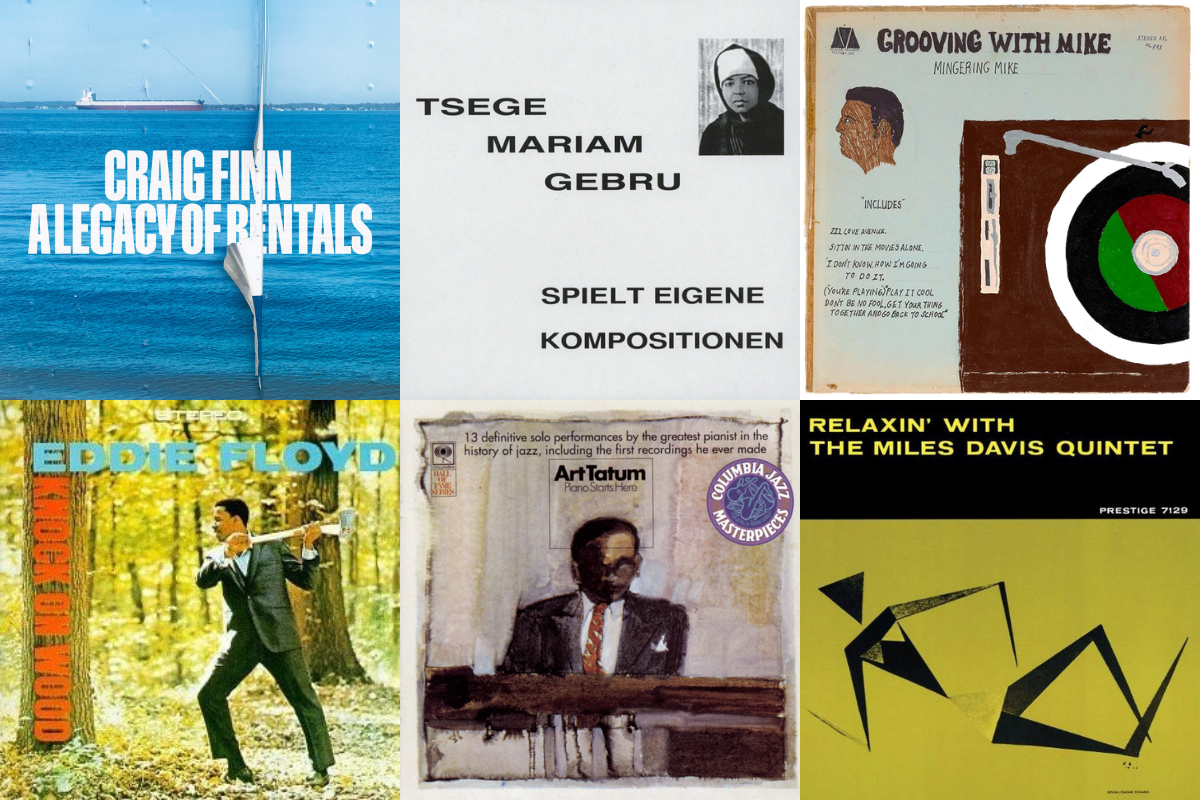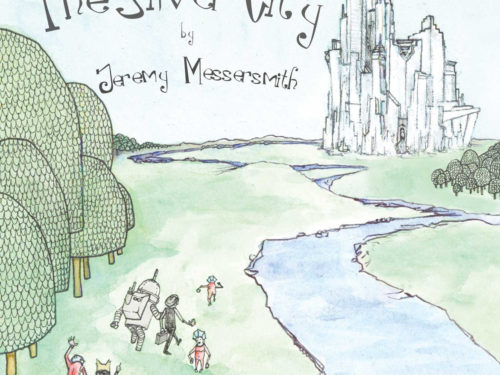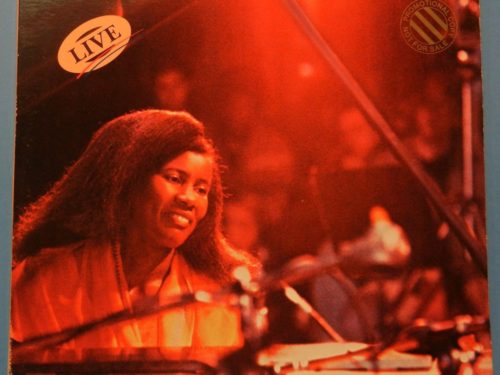Since June 2019, Craig Wright has tracked a standout song that he listened to every day. So each week (or so, give us a break) our editor will release a playlist of songs that have nothing to do with each other, make no sequential sense, and lack any overlying theme. Some are brand new discoveries, others are long-ingrained favorites; some will be completely unfamiliar, others completely inescapable. No matter what, each song is worth praising and one that ruled his day.
These songs were selected during the week of May 14-20, 2022.
“I’ve Just Been Feeling Bad” — Eddie Floyd Knock On Wood (1967)
The Stax house band is tough to beat, and as soon as Isaac Hayes kicks things off on the piano, “I’ve Just Been Feeling Bad” is well on its way to joining so many of their songs as a classic. Eddie Floyd’s solo career launched when he and guitarist Steve Cropper wrote “Knock On Wood” for Stax labelmate Otis Redding, but Floyd’s version was so good that they released it — a No. 1 hit on the R&B charts. But I’d argue “I’ve Just Been Feeling Bad” is a stronger song. The title track is indisputably the hit single on Floyd’s debut LP, but the powerhouse songs late on an album are the ones that mark the difference between a good and great record. I’m a sucker for harmonization between vocalists and horns, and Floyd’s voice blends with the crescendoing horn notes so smoothly in the chorus that you can’t help but picture Floyd doing anything but singing with his whole body, with bent knees and arms in the air. Some days all you can say is “I’ve Just Been Feeling Bad,” and this song conveys that mood perfectly, but damn if it doesn’t lift your spirits, too.
Listen on Amazon
“How High The Moon (Live)” — Art Tatum (1949)
Art Tatum has been called God and the greatest piano player to live, and there’s little reason to argue with any of those superlatives. His songs breeze by in this collection, but it’s hard not to get lost in the speed at which he plays and comprehend only a fraction of the notes he throws out. “How High The Moon” begins with a series of salvos in the intro. Its midsection pivots to a faster set of runs, where a standout eight second run of offbeats at 1:14-1:22 become a jolty streak of divine lightning injections. This whole album makes you feel both unworthy of playing instruments yourself and exhilarated as Tatum brings the piano to life in a way that no one else could. In these recordings it’s evident that a master is at work. Just sit back and enjoy.
Available through Amazon
“A Young Girl’s Complaint” — Emahoy Tsegué-Maryam Guèbrou Spielt Eigen Kompositionen (1967)
I first heard about Emahoy Tsegué-Maryam Guèbrou from Kelly Reichardt’s Pitchfork interview. She describes it as an intimate record, meaning that people who find it feel they have a sense of kinship with it because of how her friends have used it as inspiration in writing their own projects. But then, as she started to hear it in sandwich shops, she realized the secret of the little record was out. Pretty much any artist Mississippi Records backs is a safe bet, and this is no exception.
The songs do have a light hypnotizing effect, though I think they hit me in the exact opposite way of Reichardt’s friends because I can’t do anything while these songs are playing other than listen. Each song on the record is great, and I marked “A Young Girl’s Complaint” as the standout simply because after loving the first half of the album I wrote down the title of the song I was on at the time. Known as the piano-playing Ethiopian nun, Tsegué-Maryam Guèbrou’s songs have gained traction in recent years as reissues have become more available. Today, she is 98 years old, and her foundation provides opportunities for children in underserved communities to access music education, a legacy that is equally as important as the music she made herself.
Related: Read about Kelly Reichardt’s Meek’s Cutoff and Night Moves
Available through Bandcamp or Amazon
“I Could Write A Book” — Miles Davis Relaxin’ With The Miles Davis Quintet (1958)
Miles Davis was always searching for a new sound, and the pivots in even a few months can be jarring departures from what came before — In A Silent Way (1969), Bitches Brew (1970), and Jack Johnson (1971) were all released in a 19-month span and may be his greatest stretch of variety. But in 1956, Davis and his First Great Quintet (featuring John Coltrane, Red Garland, Paul Chambers, and Philly Joe Jones) recorded enough material in two days to fill four albums that Prestige would release from 1957-1961 after Davis moved to Columbia Records. And though the titles of Workin’, Steamin’, Cookin’, and Relaxin’ all hint at the energy levels of their respective albums, they stay centered in the hard bop area.
In “I Could Write A Book” you can hear the cool jazz and muted trumpets that Miles would soon turn into the greatest selling jazz record in history with 1959’s Kind Of Blue, but as it picks up speed, it also harkens back to the bebop era that Davis was beginning to push away from. Coltrane and Garland’s uptempo solos bring the middle up to a simmer as Davis bookends the song with a cooler approach. Some days hard bop just hits right, and these four records are always great sources to visit.
Available through Bandcamp and Amazon
“Red-Eyed And Blue” — Wilco Being There (1996)
Being There is an album I have heard dozens of times but could probably only name about 40 percent of the songs on because its sequencing flows so well that I never think to check the titles. “Red-Eyed And Blue” has always been a standout, and its simple ascending pattern matches the title so perfectly. It’s a finely tuned vehicle for sadness, with Jeff Tweedy lamenting that they can’t afford to record their songs or pass on drugs. Jay Bennett’s piano chords intertwine with the guitar and create an irresistible push and pull. But for its sparseness, the song brings the struggles of a newish band into full color, namely being isolated, lonely, and exhausted on the road where only two primary colors exist: being blue and red-eyed.
Available through Amazon
“There’s Nothing Wrong With You Baby” — Mingering Mike Grooving With Mike (?)
Some stories are just too good to be true. I came across an article in Maggot Brain magazine about Mingering Mike, a Washington D.C. soul singer with hundreds of albums and a legendary career — except for the fact that the music doesn’t exist. In the late 1960s, Mike, true identity unknown to the public, began to draw full album covers with full track lists, record labels, and even cardboard discs with hand-drawn record grooves. In 2003, record collector Dori Hadar found a box of mysterious records from Mingering Mike at a flea market. He uploaded the photos to the internet hoping to find more information, and eventually tracked Mike down. The record sleeves went on exhibit at the Smithsonian a few years later, and the only actual recordings Mike has are available on his website. It’s like a real-life Marvin Pontiac, except the music itself is fiction rather than a ruse. Of the songs that do exist, they’re simple demos with beatboxing, shoe taps, vocalized solos and horn parts, with Mike singing over the top. They’re barebones teasers, but would we really want something fully orchestrated to emerge from the alleged legend? Some legends endure because of their potential, which is something these demos surely preserve.
“The Year We Fell Behind” — Craig Finn A Legacy of Rentals (2022)
Any new release from Craig Finn is cause for celebration. A Legacy of Rentals was written mostly during the pandemic and while the George Floyd protests were active in Finn’s hometown of Minneapolis. Describing 2020 as “The Year We Fell Behind” is such a perfect encapsulation of the way everything in the world seems to have drifted backwards. Finn’s lyrics often deserve to be reprinted just for the satisfaction of reading them again, and that’s the case with this pair of lines here:
1: “The storm rolled in so slowly / The destruction became boring.”
2: “The Devil makes his money on the small moves / All at once has never been his style.”
Whereas so many people have tried to capture what the early days of the pandemic felt like through anxiety and thinly veiled metaphorical recaps, Finn captures how things slowly reach a boiling point, and how in retrospect Covid exposed so many issues in our society and left the entire planet on a backwards trajectory from which we’ve yet to recover. Terror and corruption have never won the foot race, but they often creep up on us in meandering fashion. Cassandra Jenkins — who previously joined Finn on “God In Chicago” and has since become one of the most promising songwriters around — provides backing vocals and response-style callbacks of the song’s central ideas. She’s a calming presence reiterating bad news, but that and some gorgeous strings alone unfortunately don’t make the reality of bad news go away. It does make it just a little easier to tolerate though, which isn’t nothing these days.
Available through Bandcamp and Amazon
Read Certain Songs Part 1 here
Stay up to date with all things Split Tooth Media and follow Craig on Twitter
(Split Tooth may earn a commission from purchases made through affiliate links on our site.)




